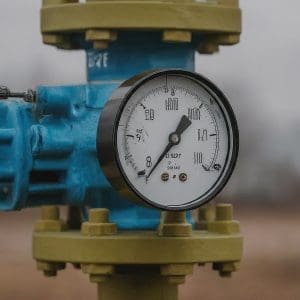 Unraveling the mystery behind a healthy pump head is like decoding a centuries-old map—full of twists and turns. Today, we embark on a journey to demystify this crucial component of well systems. The historical context of well pump heads traces back to ancient civilizations, where water accessibility was paramount for survival. Join us as we delve into the intricacies, functions, and significance of well pump heads in modern-day applications. Get ready to deepen your understanding and gain insights into this essential element of well technology.
Unraveling the mystery behind a healthy pump head is like decoding a centuries-old map—full of twists and turns. Today, we embark on a journey to demystify this crucial component of well systems. The historical context of well pump heads traces back to ancient civilizations, where water accessibility was paramount for survival. Join us as we delve into the intricacies, functions, and significance of well pump heads in modern-day applications. Get ready to deepen your understanding and gain insights into this essential element of well technology.
Understanding Pump Head Basics
Defining Pump Head
The pump head signifies the maximum height and pressure at which a pump can lift water against gravity. The total head formula comprises the discharge head and suction head. The pump head remains unaffected by the liquid level in the suction tank.
A suction head is the vertical distance between the pump centerline and the liquid level. The discharge head measures the energy required to push water out of the pump. These components provide the total head, which determines the pump’s capabilities.
Don’t fret if all this technical stuff has you scratching your head. The brainiacs at Grove & Son Well Service & Repairs have got it covered. They could probably calculate pi to the millionth decimal point while eating a sandwich. So sit back, relax, and let the pros handle the number crunching – they’ve got this!
Shut-off Head Explained
A shut-off head is the maximum head a pump generates at zero flow rate. It serves as a critical parameter for evaluating pump performance. Understanding shut-off heads aids in assessing a pump’s efficiency and operational limits.
The Shut-off head directly correlates with the flow rate in a pump system. As flow decreases, the shut-off head increases due to reduced hydraulic resistance. This relationship influences the overall efficiency and effectiveness of the pumping process.
 Pump Head vs Pressure
Pump Head vs Pressure
Pump heads and pressure differ significantly in their roles within pump operations. The head measures a pump’s ability to move fluids vertically, while pressure indicates force applied horizontally. The historical inclination towards head measurement stems from its direct relevance to pump performance.
Pressure is crucial for system design and pipe strength, whereas the head directly impacts pump selection and performance evaluation. The distinction highlights the importance of understanding both parameters for efficient pump operation.
Critical Components of Pump Performance
Total Head Simplified
The total head is the difference between the discharge and suction heads, which is crucial for a pump’s efficiency. It directly impacts the performance curve by determining the pump’s capabilities.
Understanding the total head is vital. It reflects the maximum height at which a pump can lift a liquid. This measurement plays a significant role in evaluating a pump’s performance and efficiency. By grasping the total head, operators can optimize a pump’s output based on its specifications.
Suction and Discharge Head
The suction head refers to the vertical distance from the liquid source to the pump inlet, while the discharge head is the vertical distance from the pump outlet to the discharge point. These factors contribute to the total head, affecting the pump’s effectiveness.
The suction and discharge heads are critical in determining how efficiently a pump operates. Engineers can ensure that the pump functions optimally within its specified parameters by considering these aspects.
Understanding Liquid Lift
Liquid lift is the vertical distance between the fluid source and the pump. It significantly influences the total head achievable by a pump, impacting its performance curve and efficiency.
Liquid lift directly affects how effectively a pump can move fluids, emphasizing its importance in system design and operation. Engineers must consider liquid lift when assessing a pump’s capabilities and ensuring optimal performance.
Selecting the Right Pump
Submersible Pumps Insights
Submersible pumps are designed to fully submerge in water, operating quietly and efficiently. They are ideal for deep wells and underground water sources. These pumps offer reliable performance due to their submerged nature, preventing cavitation.
Submersible pumps offer advantages over surface pumps, such as energy efficiency, reduced noise pollution, and an extended lifespan. They can also handle high volumes of water without priming issues commonly seen in traditional pumps.
Submersible pumps push water to the surface rather than pull it like traditional pumps. This design prevents air leaks and ensures continuous operation, making them suitable for various applications, including irrigation and residential water supply.
Dewatering Centrifugal Choices
When selecting a dewatering centrifugal pump, consider factors such as flow rate, head pressure, and construction material. Options range from portable units for small-scale projects to heavy-duty models for industrial use.
Key considerations include pump size, maximum lift capacity, and maintenance requirements. Dewatering centrifugal pumps efficiently remove excess water in construction sites, mines, and flood management.
Electric vs Diesel Pumps
Electric pumps offer consistent performance and lower operating costs but require a power source. Diesel pumps are versatile and can operate in remote locations without electricity. Factors like fuel availability and environmental impact influence the choice between electric and diesel pumps.
Practical Applications and Calculations
Lift in Pump Systems
Lift in pump systems refers to the vertical distance between the water source and the pump. It is critical in determining the maximum height at which a pump can push water. Understanding lift is crucial for accurately calculating the total head a pump can generate.
Regarding pump performance, lift directly impacts the pump’s ability to overcome gravity and friction losses. The higher the lift, the more power the pump needs to deliver water effectively. In essence, lift influences the shape of a pump’s performance curve, indicating its efficiency under varying lift conditions.
Using Lift for Selection
Consideration of lift is essential when selecting a pump. It helps determine the right pump for a specific application based on the required vertical distance. By understanding lift requirements, you can ensure that the selected pump can efficiently meet the necessary height specifications.
In addition to lifting, other factors like flow rate and pressure requirements must also be considered during pump selection. Lift is a fundamental criterion alongside these factors, ensuring optimal pump performance in various scenarios.
Suction Levels Clarified
Maintaining optimal suction levels is crucial for efficient pump operation. Variations in suction levels directly impact the total head a pump can achieve. Insufficient suction levels can lead to cavitation, affecting the pump’s performance and longevity.
Summary
Now that you understand pump heads’ ins and outs, you can make informed decisions when selecting a pump for your needs. Understanding the basics, components, and calculations involved empowers you to optimize your pump’s performance efficiently. With this knowledge, you can confidently choose the right pump for various applications, ensuring effectiveness and longevity in your pumping systems. Better yet, give us a call. We are here to help.
Next time you’re faced with choosing a pump, remember to consider the pump head carefully. By doing so, you’ll guarantee that your pump operates at its peak performance and meets your requirements effectively. Dive into the world of pump heads with confidence and elevate your pumping game like a pro!
Frequently Asked Questions
What is the importance of understanding pump head basics?
Understanding pump head basics is crucial as it helps you grasp how well a pump can push water through your system. It’s like knowing the horsepower of a car engine—it gives you an idea of the pump’s power and efficiency.
How do vital components of pump performance affect the overall functionality?
Key components like motor size, impeller design, and pipe diameter directly impact pump performance. Think of them as different ingredients in a recipe—each one plays a vital role in ensuring pump efficiency and effectiveness.
What factors should be considered when selecting the right pump for a specific application?
Factors such as flow rate requirements, total dynamic head, and fluid properties must be considered when choosing a pump. It’s akin to picking the right tool for the job – using a sledgehammer when a screwdriver is needed won’t work.
How can practical applications and calculations help in optimizing pump performance?
Applying practical calculations tailored to your specific system can ensure optimal pump performance. This is similar to following a workout plan designed for your fitness goals—by customizing it to your needs, you maximize efficiency and achieve better results.
Why is it essential to calculate pump heads accurately in various scenarios?
Accurate pump head calculations are essential because they determine the required pressure to move water effectively. It’s like aiming for a bullseye in darts – precise calculations ensure that your pump delivers the proper force to meet your system’s demands.

 Pump Head vs Pressure
Pump Head vs Pressure
0 Comments